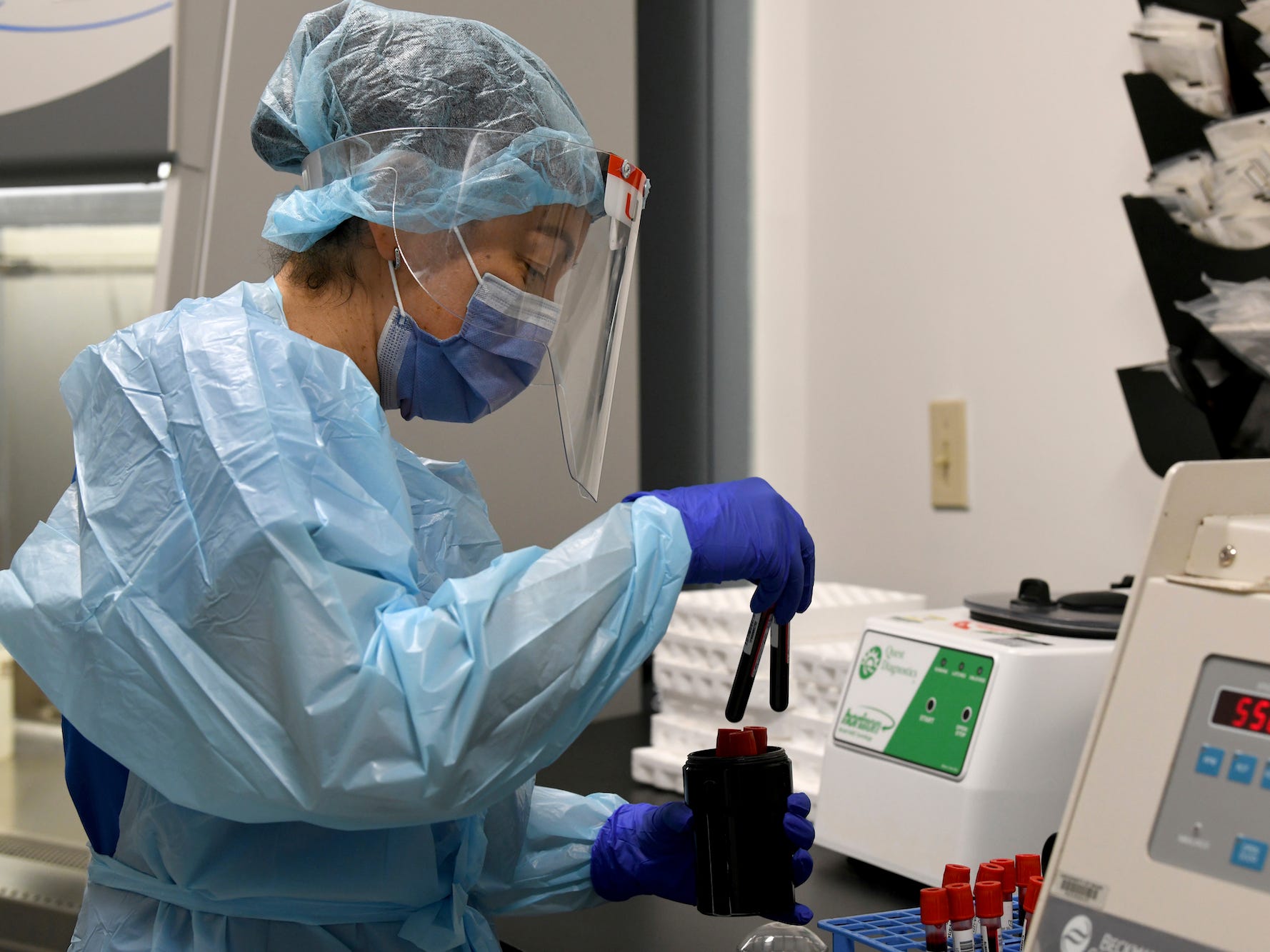
Taimy Alvarez/AP
- Moderna said Wednesday that a third dose greatly boosted antibody levels in volunteers in a study.
- This updated vaccine, tailored against the B.1.351 variant, worked best, the company said.
- These are the first clinical results from any vaccine developer testing an updated COVID-19 shot.
- See more stories on Insider's business page.
Moderna is voicing confidence in a new version of its coronavirus vaccine tailored to fight variants of the virus. The biotech on Wednesday released data from a clinical trial testing its booster doses.
These are the first clinical results from any vaccine developer testing an updated COVID-19 shot. Moderna started new research earlier this year to see if it could develop a booster shot that would better protect against the B.1.351 variant first found in South Africa.
Earlier research, done in petri dishes, suggested the B.1.351 variant was able to partially reduce the effectiveness of leading vaccines, including from Pfizer and Moderna. This means the current shots likely still work against these variants, but experts caution it's less clear how long that protection will last.
The positive findings could support the rollout of variant-specific booster doses, potentially as soon as the end of 2021 or 2022 in some countries, Moderna executives recently said.
While no one knows exactly when booster shots would be needed, experts generally think the presence of variants that can partially degrade the efficacy of vaccines will speed up the need to give additional shots, particularly for the most vulnerable populations.
Researchers tried 3 different kinds of boosters in the clinical trial
In this new clinical trial, Moderna tested a third dose on people who had previously gotten the two-dose vaccine six to eight months ago.
These study volunteers received one of three options: another dose of Moderna's original vaccine, this new version tailored to the B.1.351 variant, or a multivalent version that contains a 50-50 mix of the original and B.1.351 vaccine versions.
In a Wednesday press release, Moderna described initial results from the original vaccine and the B.1.351 shot. The company plans to later report on the multivalent version, as well as testing an even lower dose strength of 30 micrograms. The research has yet to be published in a peer-reviewed medical journal, and Moderna said it has submitted the paper to a preprint server.
Before getting the third dose, Moderna tested volunteer blood samples to see how durable the vaccine response has been through six to eight months. While 37 of the 40 people had detectable levels of antibodies, the virus-fighting proteins that are the backbone of our immune response, only about half of the participants had detectable level of antibodies against B.1.351 and P.1, the variant first identified in Brazil.
One booster shot was most effective and led to fewer reactions
The study found those who were given the B.1.351-specific booster had the most effective immune response. Antibody levels were about 62% higher in that group, compared to those given another dose of Moderna's original shot.
"We are encouraged by these new data, which reinforce our confidence that our booster strategy should be protective against these newly detected variants," Moderna CEO Stéphane Bancel said in a statement. "The strong and rapid boost in titers to levels above primary vaccination also clearly demonstrates the ability of mRNA-1273 to induce immune memory."
Moderna said the booster shots were well tolerated overall, with people having reactions similar to those seen after the second dose.
The B.1.351 booster shot appeared to produce slightly less severe reactions overall, Moderna said. About 11% getting the 351-specific booster reported a grade-three adverse event, which is severe enough to impact daily living activities, compared to 15% who got the a third dose of the original shot.
The most common side effects were fatigue, headache, muscle pain, and joint pain.










